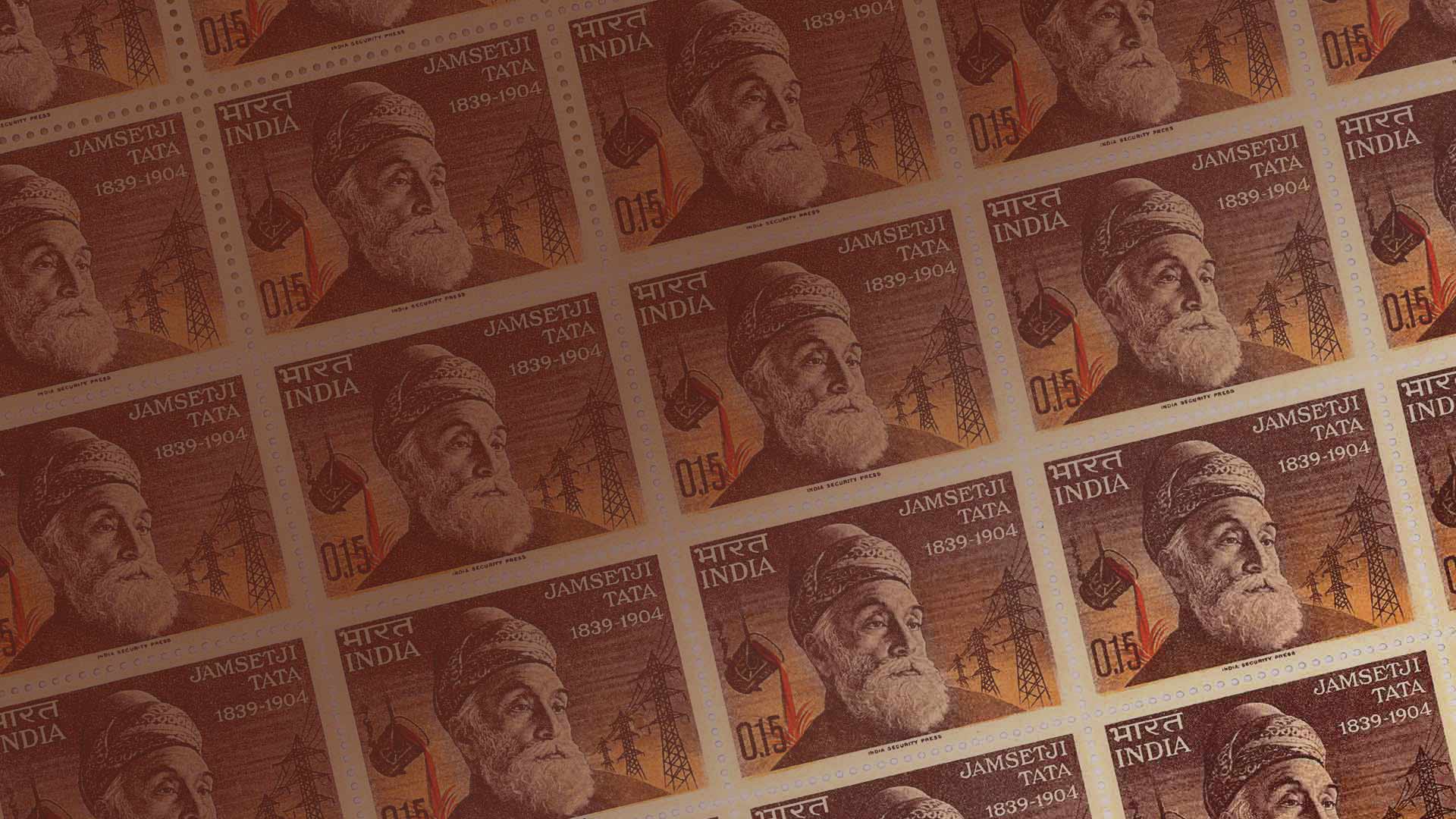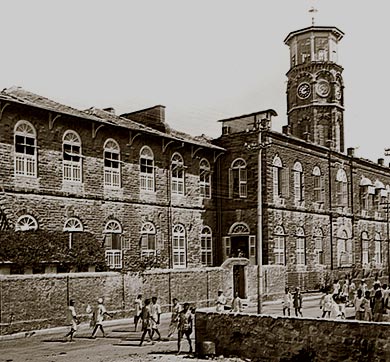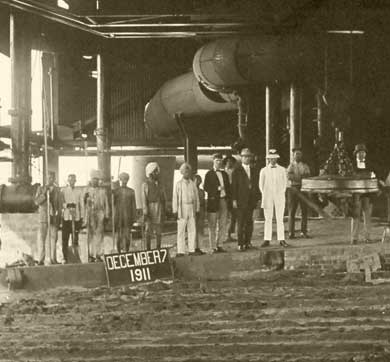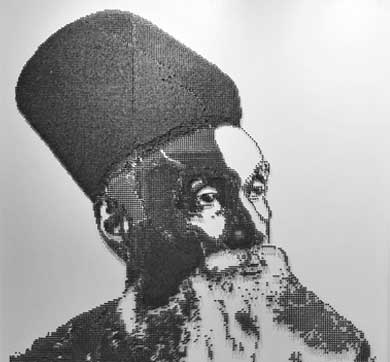April 2023 | 698 words | 3-minute read
“To my father, the acquisition of wealth was only a secondary object in life; it was always subordinate to the constant desire in his heart to improve the industrial and intellectual condition of the people of this country; and the various enterprises which he from time to time undertook in his lifetime had for their principal object the advancement of India in these important respects. To me, it is a matter of the utmost regret that he is not alive today to see the accomplishment of the three cherished aims of the last years of his life — viz, Research Institute, the Iron and Steel project and the Hydro-Electric Scheme… Kind fate, has however, permitted me to help in bringing to completion his inestimable legacy of service to the country, and it is a matter of the greatest gratification to his sons to have been permitted to carry to fruition the sacred trust which he committed to their charge.”
— Sir Dorabji Tata, during the foundation stone laying of Tata Power’s first dam, February 8, 1911
“Most businessmen carry on trade and commerce with utter unconcern toward everything else and thus become merchant princes. … But among them, men are rare who think in terms of their country’s interests.”
— Bal Gangadhar Tilak in Kesari, May 24, 1904
“That he was a man of destiny is clear. It would seem, indeed, as if the hour of his birth, his life, his talents, his actions, the chain of events which he set in motion or influenced, and the services he rendered to his country and to his people, were all predestined as part of the greater destiny of India.”
— JRD Tata in the foreword to Jamsetji Nusserwanji Tata — A Chronicle of His Life (Second Edition), 1958
“In whatever he did, Mr Tata never looked to self-interest. He never cared for any titles from the government, nor did he ever take distinctions of caste or race into consideration. … For him it was enough that they were Indians. He was a man of deep compassion. Tears came to his eyes at the thought of the sufferings of the poor. Though he possessed unlimited wealth, he spent nothing from it on his own pleasures. His simplicity was remarkable. May India produce many Tatas!”
— Mahatma Gandhi in Indian Opinion, May 20, 1905
“I once wrote an article in which I said that the man who built a hotel worthy of such a city would do more for Bombay than the donor of many museums. He (Jamsetji Tata) came to me and told me that the idea had long been simmering in his mind, and that he had made much study of the subject. He had not the slightest desire to own a hotel, however; his sole wish was to attract people to India, and incidentally to improve Bombay.”
— Lovat Fraser, author and a close acquaintance of the Tatas, as quoted in The Taj at Apollo Bunder
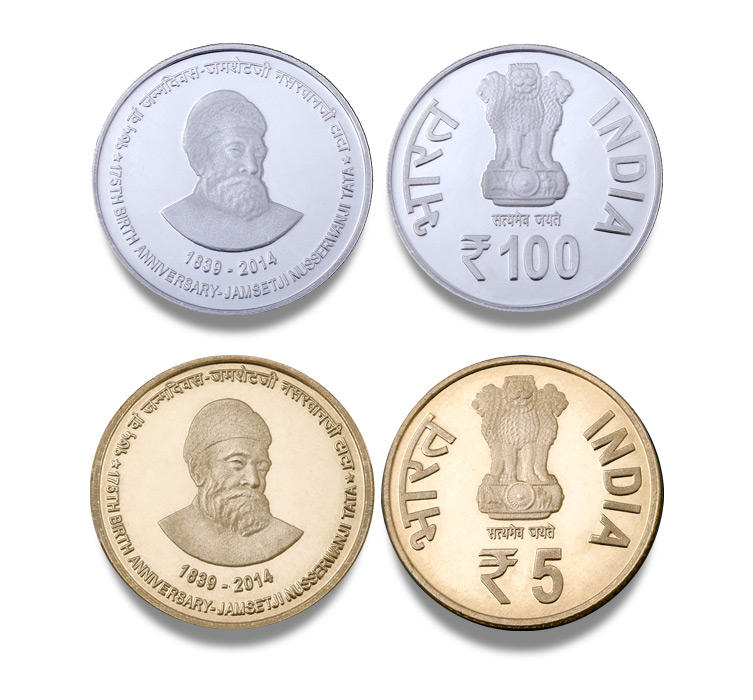
“While many others worked at loosening the chains of slavery and hastened the march towards the dawn of freedom, Jamsetji dreamed of and worked for life as it was to be fashioned after liberation. Most of the others worked for freedom from a bad life of servitude. Jamsetji worked for freedom for fashioning a better life of economic independence.”
—Dr Zakir Husain, the then President of India, at the Tata Institute of Social Sciences, 1962
“This great enterprise has been due to the prescience, imagination and genius of the late Mr Jamsetji Tata. We may well say that he has his lasting memorial in the works that we see here all round.”
— Lord Chelmsford, the then Viceroy of India, while renaming Sakchi as Jamshedpur, January 2, 1919
“I cannot do better today than ask them one and all to take as an example and inspiration for their future lives the lifework of Mr Jamsetji Tata. If they seriously endeavour to emulate his example, I am full of hope that in the future we may produce many men in this country with brains, character, and courage whose work will stand high in their various professions in all parts of the world."
— Lord Willingdon, the then Viceroy of India, at the inauguration of Tata Power, February 11, 1915
“He never cared for his own personal advantage. He never sought any quid pro quo for whatever enterprise he had in hand and for whatever grant he made for some practical object. He did not wish even, as I have been assured on the best information, to have that Research Institute (which became the Indian Institute of Science), of which we hear so much, connected with his name… It was his express wish that it should not bear his name, and it is, I think, a most striking illustration of the desire of the man ‘to do good by stealth’.”
— Lord Lamington, the then Governor of Bombay, at the JN Tata Memorial Meeting, March 28, 1905
“Now the mere tale of his accomplishments is an imposing record of a full life, but it reflects only the lesser side of that life. To understand him, and his work for India, it is imperatively necessary to realise not only what he did, but why he did it. His was a life devoted to the service of India. … He surveyed the economic field as a whole and determined that so far as power was given to him it should be used to raise India to one of the great industrial countries in the world, and that her industries should be based on the application of science to production. He was a business patriot in the full sense of the term. These are the qualities which give him an assured place amongst the makers of modern India.”
— Sir Stanley Reed, author and editor, in the foreword to Jamsetji Nusserwanji Tata — A Chronicle of His Life (First Edition), 1925
“Let me say it is not to honour him that we are raising this statue, but we are putting up a beacon light to successful generations of people coming afterwards to exhort and tell them — go thou and do likewise.”
— Sir Pherozeshah Mehta in an invitation to unveil a statue of Jamsetji Tata, 1912
Compiled by Rajendra Prasad Narla, an archivist with the Tata Central Archives.




